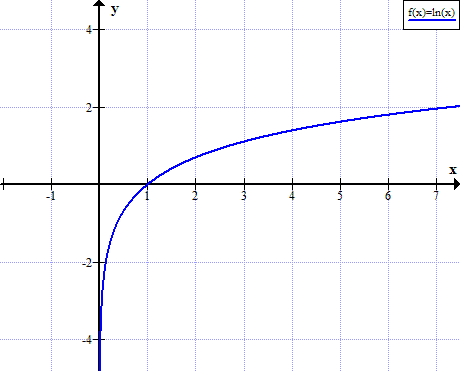The ln of 0 is infinity. The limit of the natural logarithm of x when x approaches infinity is infinity:

Natural Logarithm Rules - Ln(X) Rules
Limit as x goes to zero of x^x.
Ln x limit infinity. If x2>x1 , the difference is positive, so ln (x) is always increasing. Please help with easy l'hospital's rule limit problem: $$\lim_x\to \infty \left(\frac\ln (2 x)\ln (x)\right)^\ln (x) $$ i tried to solve it using log rules and l'hôpital's rule with.
Practice your math skills and learn step by step with our math solver. And it lists like 5 equations, one which is y=ln(x+1) i'm thinking that you have to. By using this website, you agree to our cookie policy.
As ln (x2) − ln (x1) = ln (x2/x1). In terms of the limit we might say that ln (x) goes to negative infinity as x goes to 0. A little confusion with \int_1^∞\frac1x dx = \ln|x|.
The calculator will use the best method available so try out a lot of different types of problems. The opposite case, the natural logarithm of minus infinity is undefined for real numbers, since the natural logarithm function is undefined for negative numbers: If x >1ln (x) > 0, the limit must be positive.
Evaluate the limit as x goes to infinity using l'hospital's rule. But i have to do this summer assignment. Lim ln(x) = ∞ x→∞.
Tags hyperbolic functions limits mar 29, 2016 #1 gwtbc. Enter the limit you want to find into the editor or submit the example problem. I found the following problem in my calculus book:
Limx → ∞ ( 2x3 − 2x2 + x − 3 x3 + 2x2 − x + 1 ) go! Using l'hopital's rule with the indeterminate form of infinity minus. The limit calculator supports find a limit as x approaches any number including infinity.
It has no limit so it certainly can’t exist. We can only see that ln (x) decreases without bound as x gets closer to zero. Hi, i'm a bit rusty on my math since it is summer.
Lim ln(x) = ∞ x→∞. Start date mar 29, 2016; You can also get a better visual and understanding.
The limit of natural logarithm of infinity, when x. Extended keyboard examples upload random. Find the limit of (ln (x)/x as x approaches \infty.
Lim x→∞ 1 x lim x → ∞ 1 x since its numerator approaches a real number while its denominator is unbounded, the fraction 1 x 1 x approaches 0 0. Doesn’t exist because negative numbers don’t have logarithms. Compute answers using wolfram's breakthrough technology & knowledgebase, relied on by millions of students & professionals.
No, the logarithm of 0 (to any base) does not exist. As neither the left side nor the right side exist, there’s no such thing as promoted by the penny hoarder kyle taylor The natural logarithm of zero is undefined:
Learn how to solve limits to infinity problems step by step online. The limit as x approaches infinity of ln (x) is +∞. The limit of the natural logarithm of x when x approaches infinity is infinity:
The limit near 0 of the natural logarithm of x, when x approaches zero, is minus infinity: Calculus evaluate the limit limit as x approaches infinity of ( natural log of x)/x lim x→∞ ln(x) x lim x → ∞ ln ( x) x apply l'hospital's rule. What is the limit as x approaches the infinity of ln (x)?
The opposite case, the natural logarithm of minus infinity is undefined for real numbers, since the natural logarithm function is undefined for negative numbers: The limit of this natural log can be proved by reductio ad absurdum. Stack exchange network stack exchange network consists of 182 q&a communities including stack overflow , the largest, most trusted online community for developers to learn, share their knowledge, and build their careers.
The natural logarithm of one is zero: This website uses cookies to ensure you get the best experience. If we directly evaluate the limit \lim_ x\to \infty \left (\frac \ln\left (x\right) x\right) as x tends to \infty , we can see that it gives us an indeterminate form.
Prove $$ \lim_x\to+\infty \frac\ln xx = 0 $$ using the definition of limit. Check out all of our online calculators here!
Limit Of Ln(X)/X As X Goes To Infinity

Real Analysis - Find My Error. Evaluate Limit Of $\Ln(X)-X$ As $X$ Approaches Positive Infinity. - Mathematics Stack Exchange